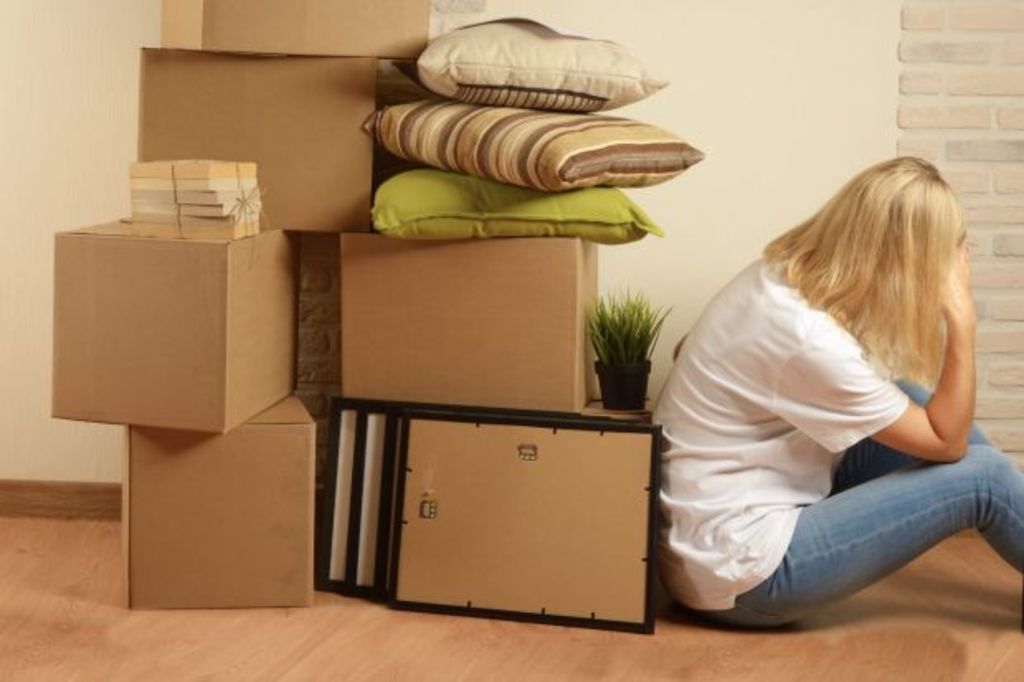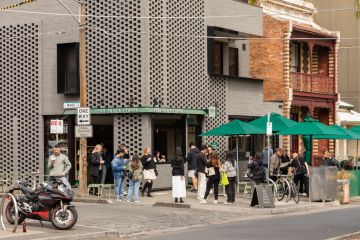The stages of moving: A humorous look at how this major life change affects our psychology

Moving house, like paying tax and screaming at an automated checkout about unexpected items in the bagging area, is one of the inevitable traumas of adulthood.
“I moved out of home when I was 24,” says Melbourne comedian Josh Glanc, who bounced around between sharehouses in the inner-city for seven years before moving back in with his parents last year.
“At first it was nice to be home. I saved a lot of money, but its wholly unnatural for an adult child to live with their mother. I seriously regressed, and notwithstanding the financial savings, a few months ago realised that if I didn’t move out soon I’d be a toddler again.”
While comedians can often see the lighter side of things, it doesn’t mean they don’t suffer when moving like the rest of us.
“I hate it. I’d prefer to spend a year on Cavill Ave on the Gold Coast,” says Kyle Minall, who has moved nine times in the past eight years. “I don’t think anyone would enjoy it. It’s pretty sadistic to crave heavy lifting and throwing away memories.”
Moving house can be a time of great whinging, but relocation can also bring up a variety of emotions.
“If you think about it like this, your house is like yourself; it’s the public part of you that other people see that you present to the world, so you are actually having a loss experience so you need some kind of letting go,” says psychologist and author Meredith Fuller.
So, in the same way we consider the stages of grief, let’s look at the stages of moving house.
Denial
The amount of time packing and moving takes, and then unpacking again, is easily underestimated.
“I’ve stopped unpacking my books and magazines. I don’t read them again anyway so now they just live wrapped in boxes waiting to be moved on again,” says Glanc, who has moved five times in seven years and, while back with his parents is preparing to tour the follow-up to his award-winning Manful show in 2018.
Another symptom of moving denial can be not allowing enough time to get utilities connected.
If you do leave it to the last minute, some companies can get your utilities up and running in no time. AGL Energy provides gas, electricity and solar PV, and in most cases will be able to have the power sorted on the day you move with just one business day’s notice.
If you arrange your move online, you’ll also have a personalised move tracker, which gives you one less thing to worry about. You can stay across how your energy connection is progressing on AGL My Account or via the App. You can also choose your plan after you’ve settled in, giving you one less thing to think about during the move itself.
Anger
“Can you imagine if your phone went flat?” says Minall, of possibly the greatest trauma imaginable. Minall is better known as Maureen McGillicuddy, one of the three old biddies from Granny Bingo whose show A Visit with Nan in a Caravan won the Golden Gibbo Award at the 2017 Melbourne International Comedy Festival.
To avoid getting angry during a move, Minall keeps essentials out and accessible – toilet paper, pocket knife, a roll of moving tape, a water bottle, a sharpie and a microfibre cloth and of course, the all-important phone charger.
To give you a little more reassurance when you move, AGL offer a power-on guarantee ensuring the fridge can be turned on straight away and the phone charger is usable. If the power’s not on after the agreed day, they’ll cover your related expenses up to $250 a day until your power is on. You just need to provide one business day’s notice and ensure clear access to your meter. They also have no lock-in contracts, meaning when it’s time to move again, there are no early exit fees to worry about.
Bargaining
You could hire removalists or, to save a bit of money, hire a truck and do it yourself. Glanc tried this on his last move but “the savings quickly dissipated when I crashed the huge truck into a parked car,” he says. When it comes to bargaining with mates to get them to help, he’ll offer beer and pizza but has found “blackmail works well too – just tell them that if they don’t help you’ll let everyone know that secret they recently confessed.”
Depression
Having moved from an “incredible” house in South Melbourne to a less-loved place in South Yarra three months ago, Minall is still having some post-move blues.
“I really have it with my current place. It’s nice and in a great location, but there was so much more going for the other place,” he says.
Glanc has had similar experiences. “Adapting to a new environment takes time. In the case of sharehouses you need to work out everything again. Where are the pots kept? Which shelf in the pantry is mine? Is toothpaste communal? Who ate my avocado!?”
Acceptance
Fuller says that while a move can trigger sadness, it is also a time of renewal.
“There is also that sense of clearing out, ready to bring in the new,” she says. “One of the problems is that people focus on their loss, and they don’t realise that every loss is also an opportunity: I can find a nice new place to get my coffee or go shopping or I might have a fantastic new neighbour.”
We recommend
We thought you might like
States
Capital Cities
Capital Cities - Rentals
Popular Areas
Allhomes
More







